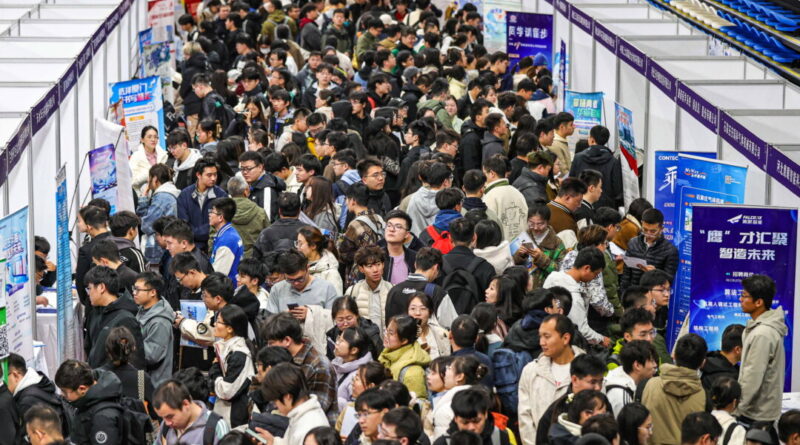Chinese Youth Start New ‘Losing My Mind’ Trend Amid High Jobless Rate
Faced with grim career prospects, China’s youths are coping with stress and frustration through unconventional ways.
News Analysis
A sense of frustration hangs over China’s younger generation as the youth unemployment rate remains high. A growing number of young Chinese are starting a “losing my mind” trend as a way to alleviate stress and anxiety.
China’s National Bureau of Statistics announced on Oct. 22 the latest youth unemployment rate (for ages 16 to 24), which was about 18 percent in September. The number was based on a changed methodology—excluding youth enrolled in schools—following Beijing’s decision to suspend the publication of youth unemployment data after the figure climbed to a record high of 21 percent in June 2023.
Tens of millions of college graduates just out of school this summer strained the labor market further. Faced with grim career prospects, a new “losing my mind” trend has begun to take hold among Chinese youth.
Some travel agencies have developed new programs to organize tours featuring psychiatric-themed clothing. One agency in China’s southern Hunan Province recently told The Epoch Times that such programs are “quite popular among young people.”
According to one of the agency’s employees, who requested to remain anonymous, dressing up in hospital gowns and hanging out with strangers could help their clients forget about their problems.
“The living and working environments in China are challenging, with people suffering from numerous anxieties and who generally feel very exhausted,” she said.
According to official data, net foreign direct investment outflow was about $113 billion in the first half of 2024, compared to a net annual inflow of about $120 billion a decade ago. Quarterly net outflows began last year. However, due to Chinese authorities’ past record of underreporting and covering up information, it is difficult to assess the true situation of China’s economy.
Xiaoman (a pseudonym) lost her job half a year ago. She was a computer programmer in Guangzhou, one of China’s most prosperous industrial cities.
“Some factories in the internet-related industry have downsized, laying off thousands of workers. I’m one of them, and my classmates have also lost their jobs,” she told The Epoch Times.
Xiaoman said she is still job hunting but feels hopeless.
Sun Jiayu (pseudonym) moved from Shandong Province to Beijing nine years ago. She works 12 hours daily as a food delivery worker to support her high school daughter.
The number of delivery workers in Beijing has surged threefold, leading to competition and a significant decline in their earnings, she said. Among the newcomers are recent university graduates who, faced with a challenging job market, are turning to this gig economy to make ends meet.
In the industry’s boom years, Sun said, she earned more than 10,000 yuan (about $1,400) a month; now, she earns between 6,000 and 7,000 yuan (about $840–$985).
“The cost of living in Beijing is fairly high, and I have to scrimp and save to put money aside,” she told The Epoch Times.
Wage-earners in the sales sector also face hardships due to declining consumer demand and consumption.
Liu Ming, 25, from Anyang, Henan Province, works as a livestock salesman. He told The Epoch Times that he cannot financially support himself and partly relies on his parents.
Feeling dejected, he said: “I can’t even get by now. How can I think about the future?”





